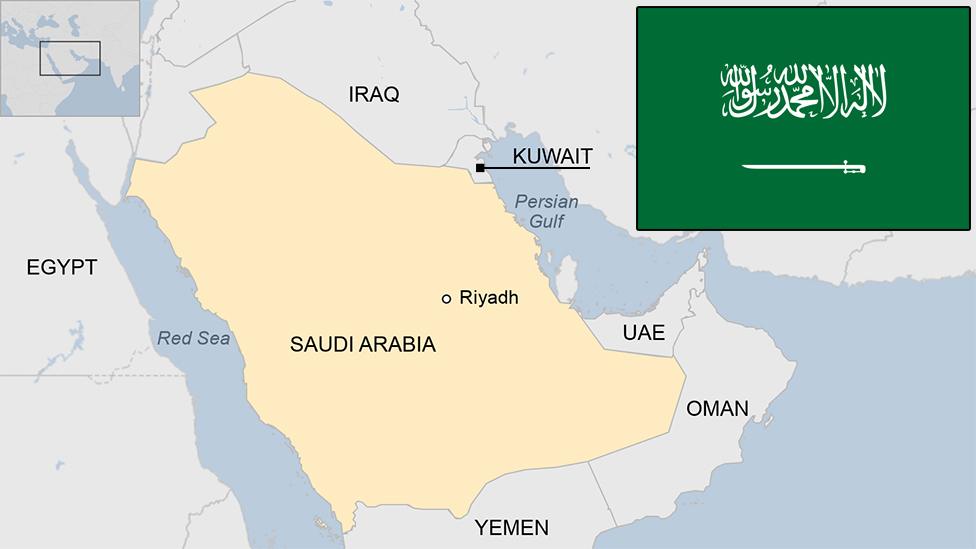Fraught relationship between Saudi Arabia and 'Brand Britain'
- Published
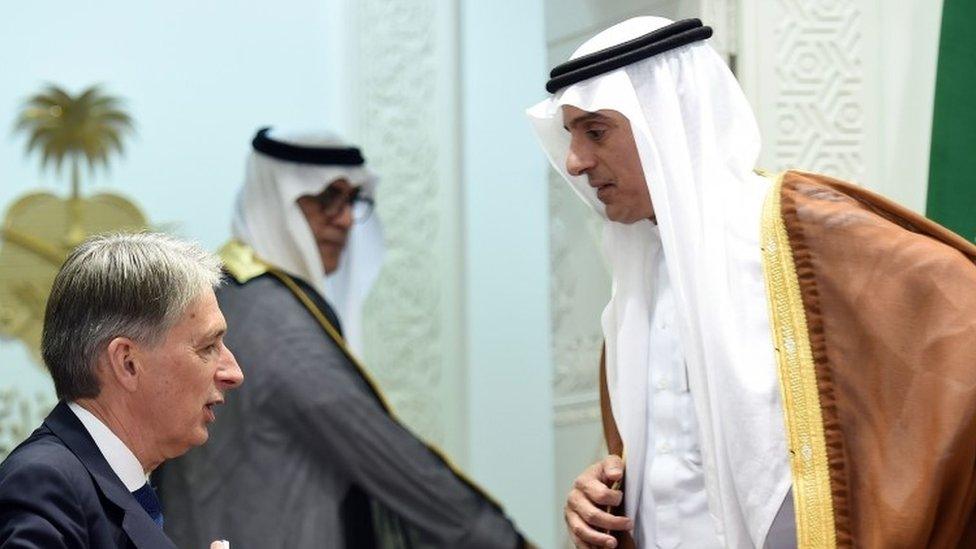
This relationship between two kingdoms has often been rocked by recent tensions
Brand Britain is ubiquitous in Riyadh - a slow drive through heavy traffic causes you to notice all the trademark signs you would see on British high streets.
It is a visual reminder that the Saudi Kingdom is Britain's biggest market in the Middle East.
Inside gleaming luxury stores with all the recognisable labels, it is shopping Saudi-style.
Shops shut at prayer times throughout the day, and the growing number of female employees wear long black abaya cloaks, black headscarves or the niqab to reveal only their eyes, in line with this conservative culture.
It is a visual reminder that two countries with what many call a special relationship have found ways to work together, while trying to respect very different traditions.
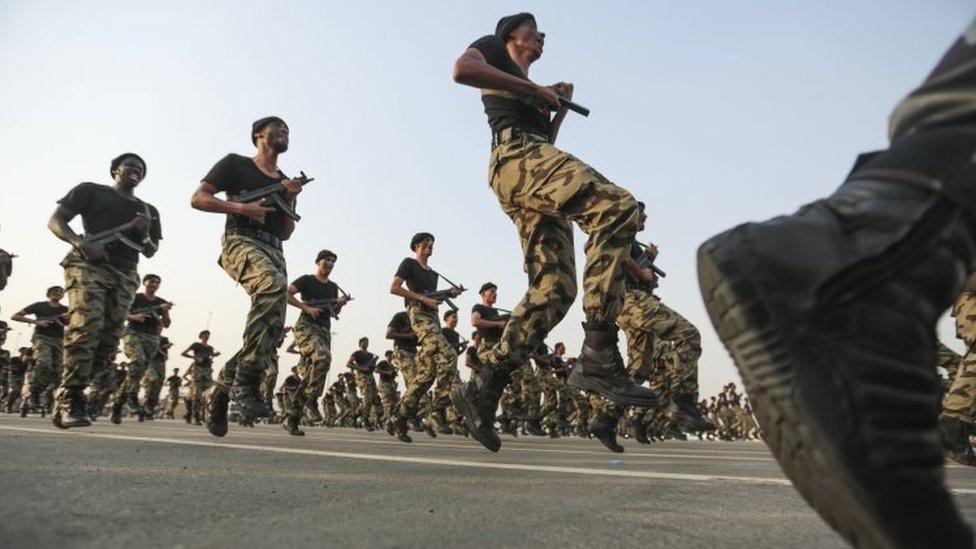
Saudi Arabia has been criticised by some in Britain for not doing enough to prevent the tragic crush of people during the recent annual Hajj pilgrimage
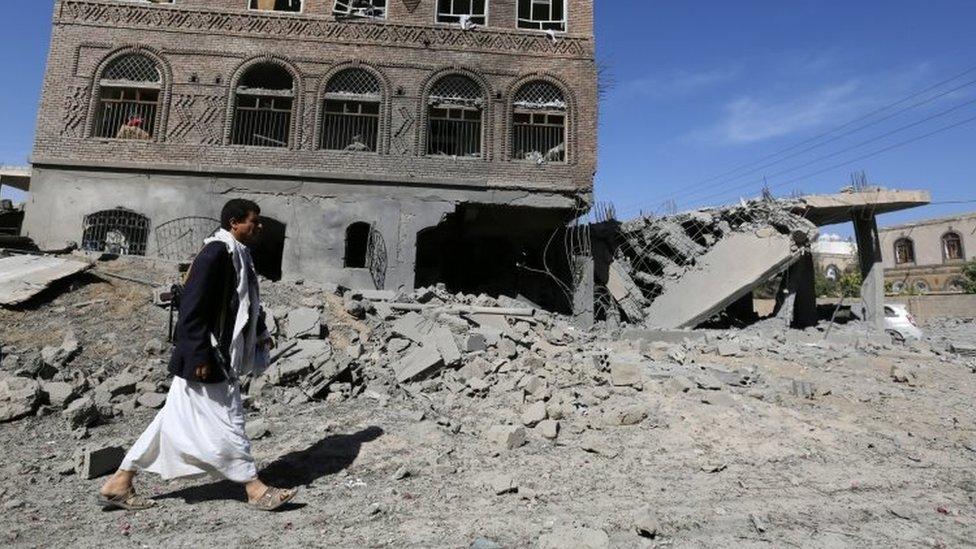
Many politicians in the West are concerned over what they say are the grave humanitarian consequences of the Saudi-led war in Yemen
But this comfortable partnership is often sharply jolted. And the ties that bind are often brought to bear to ease the strains.
"We have a very open frank relationship, based on a very strong relationship in areas of trade, defence and security collaboration that allows us to talk about areas of concern, perhaps sensitive issues," Britain's Foreign Secretary Philip Hammond told me when he arrived in Riyadh this week.
That is why, he says, he was able to announce that 74-year-old British citizen Karl Andree will leave his Saudi prison cell in the next week.
International concern
He will leave behind a kingdom he came to call home, and escape a punishment of 350 lashes for being caught with homemade wine.
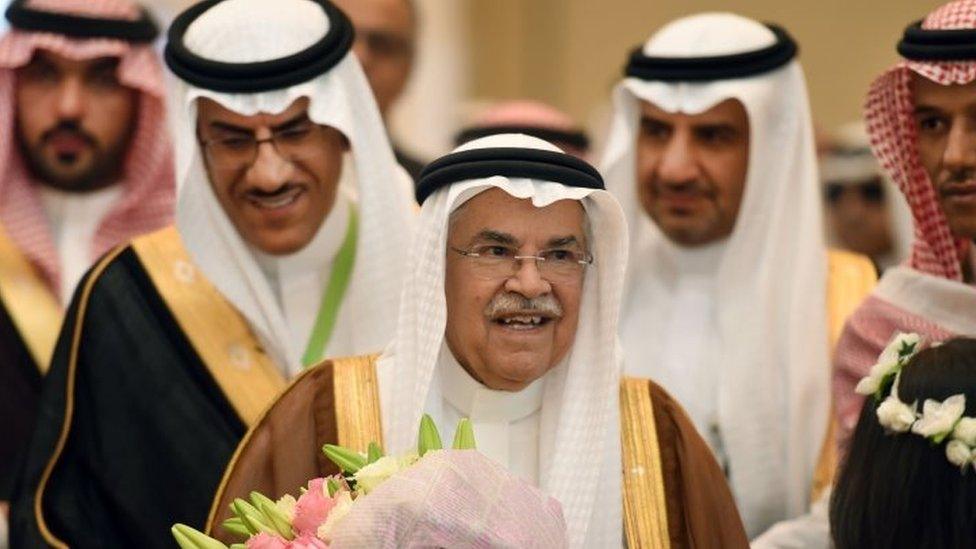
A major international mining and minerals exhibition and conference has recently been held in Riyadh
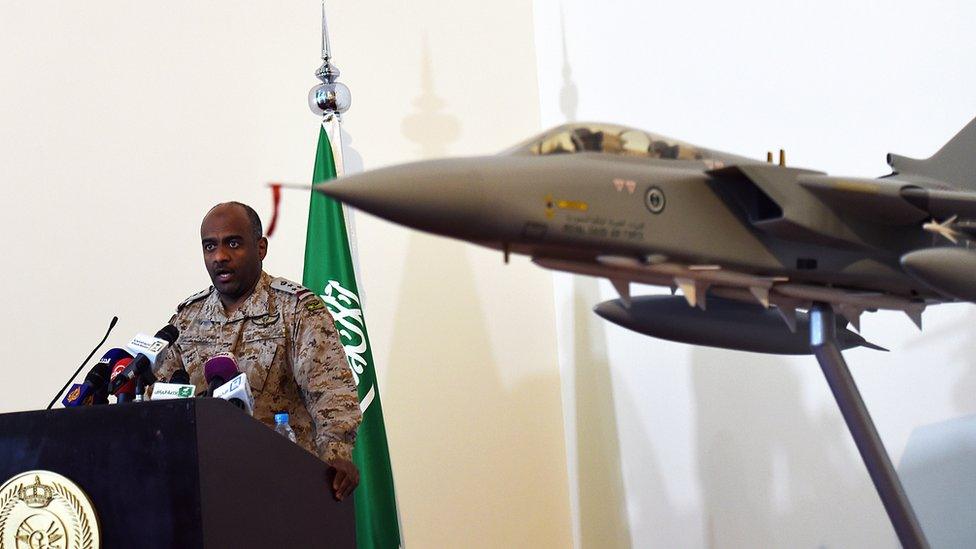
The British government is eager to conclude several major arms deals with Saudi Arabia
But other individuals, like jailed Saudi blogger Raif Badawi facing 1,000 lashes, and Ali Al-Nimr on death row, remain issues of great international concern.
There was said to be a "back and forth" on their plight too during Mr Hammond's talks with Saudi leaders including King Salman. But there is still no word on if and when they will ever walk free.
This relationship between two kingdoms has often been rocked by tensions back in Britain too over how to balance human rights concerns with the government's desire to promote a crucial trade and investment relationship including major arms deals which make Britain one of Saudi Arabia's leading suppliers.
Those arguments recently erupted publicly inside David Cameron's government and resulted in the cancellation of a £5.9m ($9m) contract for training in prisons.
Saudi officials defend their Islamic Sharia law system but in private some express discomfort with brutal punishments like stoning, and grisly beheadings in the streets, which make headlines around the world.
Efforts are said to be underway to codify this body of laws to avoid what one diplomat called "maverick judgements".
For London, freedom for a British grandfather in poor health takes some of the public sting out of this matter.
But a strongly worded warning from Saudi Arabia's ambassador in London earlier this week was another reminder of simmering sensitivities.
In his letter published in the Telegraph newspaper Mohammed bin Nawaf bin Abdulaziz warned of "potentially serious repercussions that could damage the mutually beneficial strategic partnership that our countries have so long enjoyed".
His sharp rebuke came in the midst of a wave of highly critical reports about the Kingdom including coverage of the tragic crush of people during the annual Hajj pilgrimage, demands for Riyadh do more to give refuge to Syrians fleeing a punishing war, as well as the condemnation by human rights watchdogs of its harsh Islamic Sharia law punishments.
The ambassador's warning made headlines in some Saudi newspapers so I carried one with me when I attended the opening of the first major international Mining and Minerals Conference in Riyadh, external.
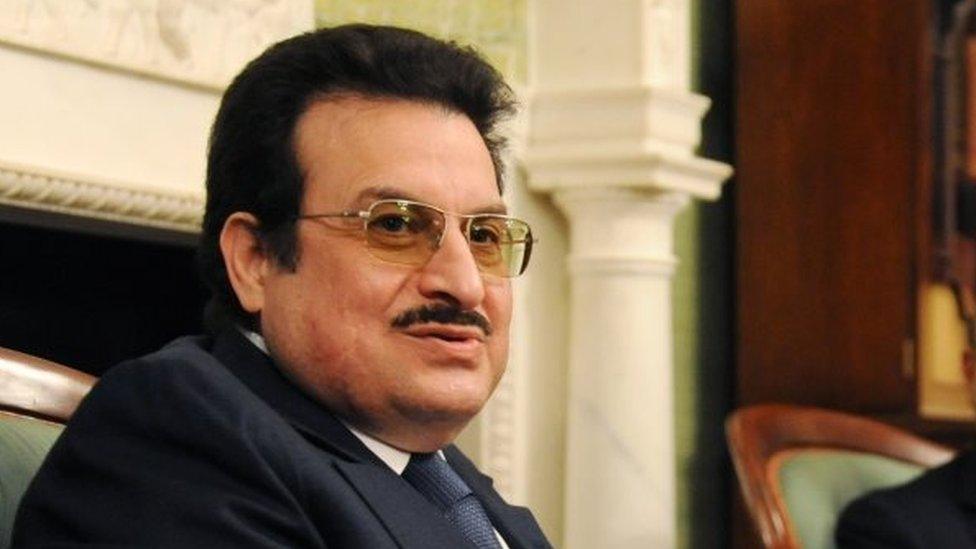
Saudi Arabia's ambassador to the UK Prince Mohammed bin Nawaf bin Abdulaziz delivered a strongly worded warning in London earlier this week about future bilateral relations
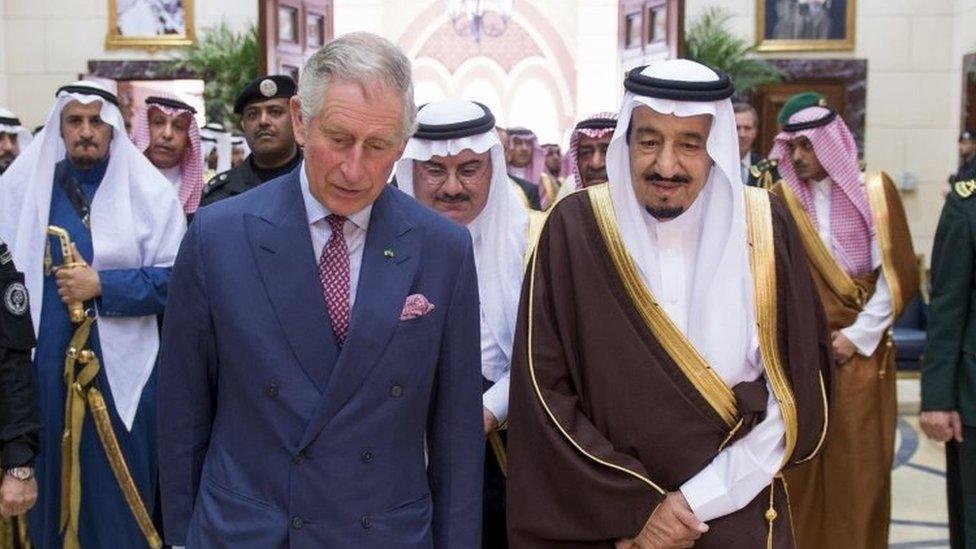
Britain and Saudi Arabia are two kingdoms with a long history of harmonious relations
Inside the sprawling Prince Sultan Hall, transformed into a sparkling gallery of exhibition booths, it still felt like "business as usual" as the powerful Minister of Petroleum and Mineral Resources, Ali Bin Ibrahim Al-Naimi, snipped with a smile the traditional red ribbon on a familiar red carpet for investors seeking to spend time and money in the kingdom.
I showed a Saudi newspaper headline to Sandy Angus, chairman of British firm Angus Montgomery, who have been in the business of organising exhibitions for 120 years including three decades in the Middle East.
"There's no feel of that at all," he says, looking at Gulf News which put the words "UK ties" in bold red letters and "dark clouds" in black. "But if any aspersions are cast on the relationship one is obviously nervous of that and the implications in the long term."
Capital punishment
At the elegantly appointed headquarters of the Saudi Arabia General Investment Authority, the genial Governor and Chairman of the Board Abdullatif al-Othman speaks of a relationship that is "deep and strategic with common interests and a partnership which is much stronger than the effects of some negative articles".
It is hard to get anyone to respond officially to criticism of judicial punishments so I asked Mr Al-Othman whether the negative reports are affecting his efforts to attract foreign investors to the kingdom.
"We can all can argue about the ideologies of capital punishment and what sort of punishments," he replies, pointing out that capital punishment exists in many countries around the world.
"So long as it is independent, that it is fair, and there is a fair trial and an appeal process we have to respect that," he explains.
But this spike in condemnation of Saudi Arabia's human rights record comes at a time when Saudi leaders are being courted even more than ever.
Saudi Arabia's significance to the rest of the world explained - in 60 seconds
Riyadh is emerging as a leading go-to capital in the midst of an unprecedented diplomatic push to resolve the crisis in Syria.
In the past week, Russia's President Vladimir Putin called the Saudi King twice.
US President Obama also spoke on the telephone to King Salman.
Saudi sources confirmed these conversations helped convince Saudi leaders to ease their strong opposition to the participation of their arch rival Iran at a major international gathering on Syria in Vienna this week.
Diplomatic sources say Mr Hammond also began some of his conversations here with expressions of concern over the grave humanitarian consequences of the war in Yemen where a Saudi-led coalition has been accused of scant regard for civilian casualties and suffering - charges that Saudi officials throw back at Houthi rebels who forced the Yemeni government out of Sanaa earlier this year.
As special as any relationship may be, different interests and ideas means it will always be fraught with risk, and occasional ruptures.
- Published28 October 2015
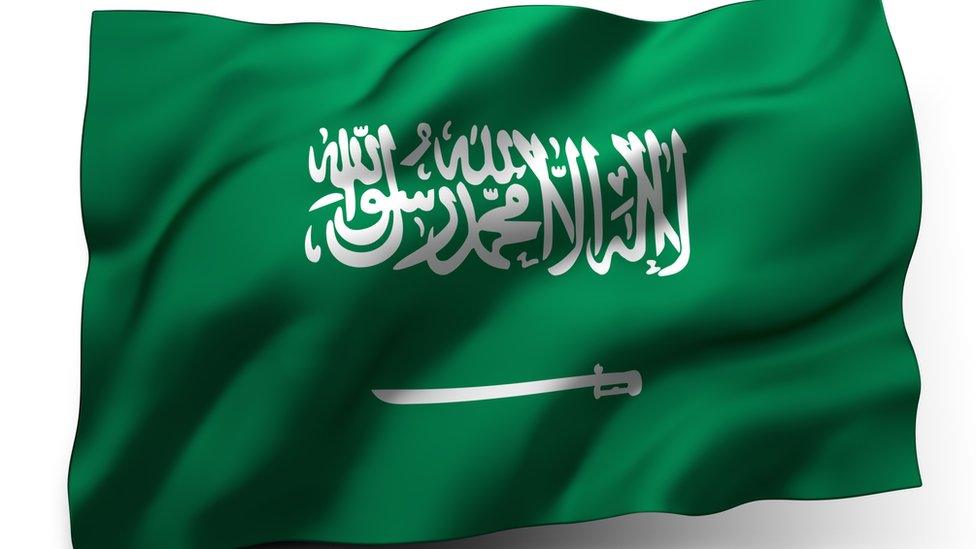
- Published28 October 2015
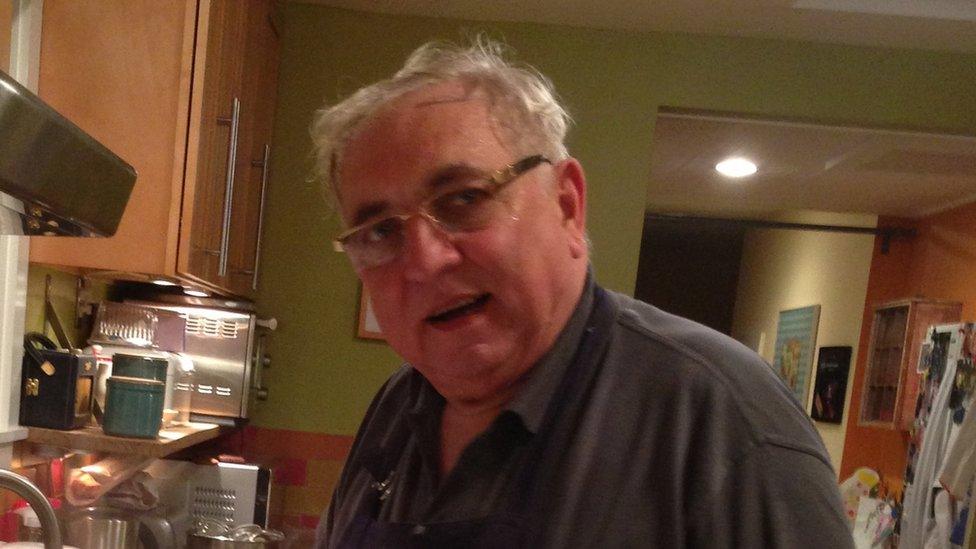
- Published26 October 2015
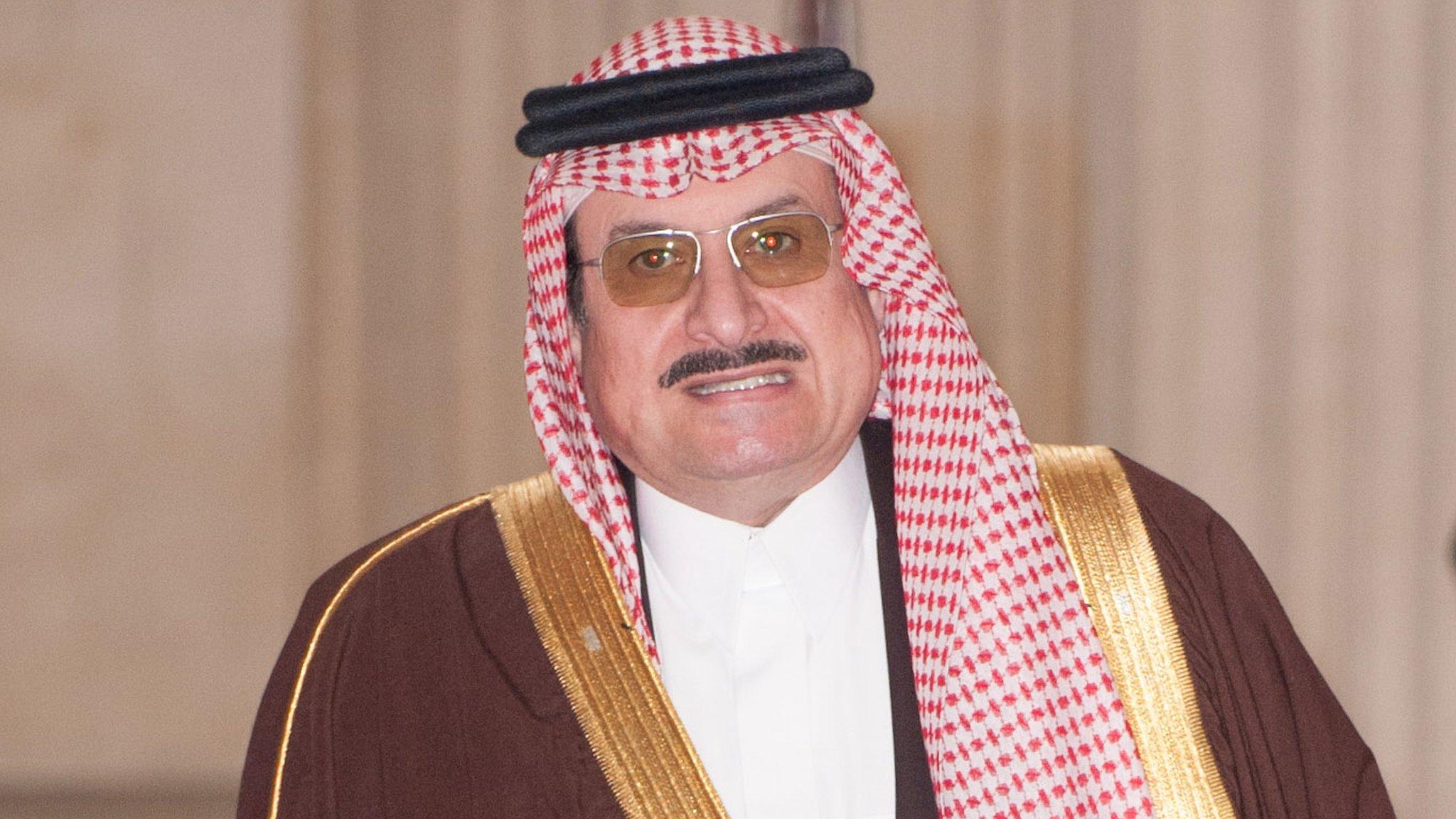
- Published26 October 2015
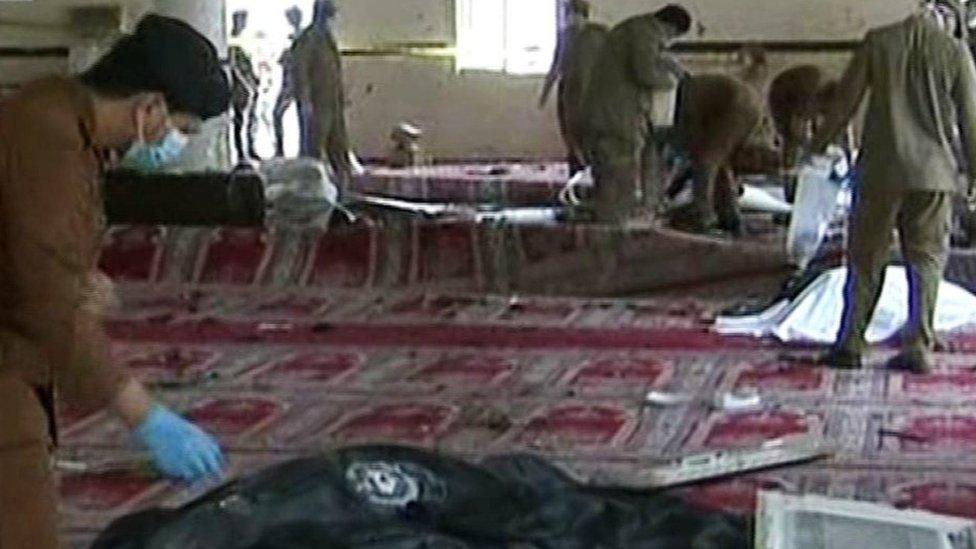
- Published12 February 2015
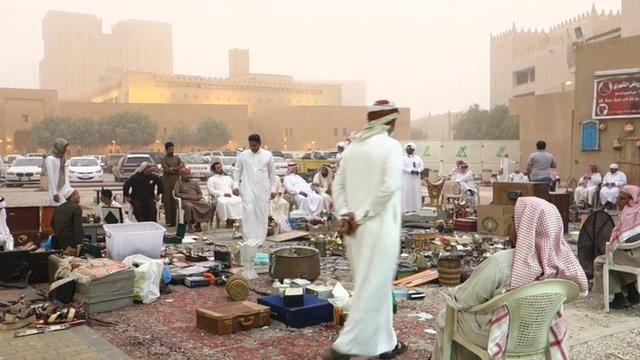
- Published29 August 2023
